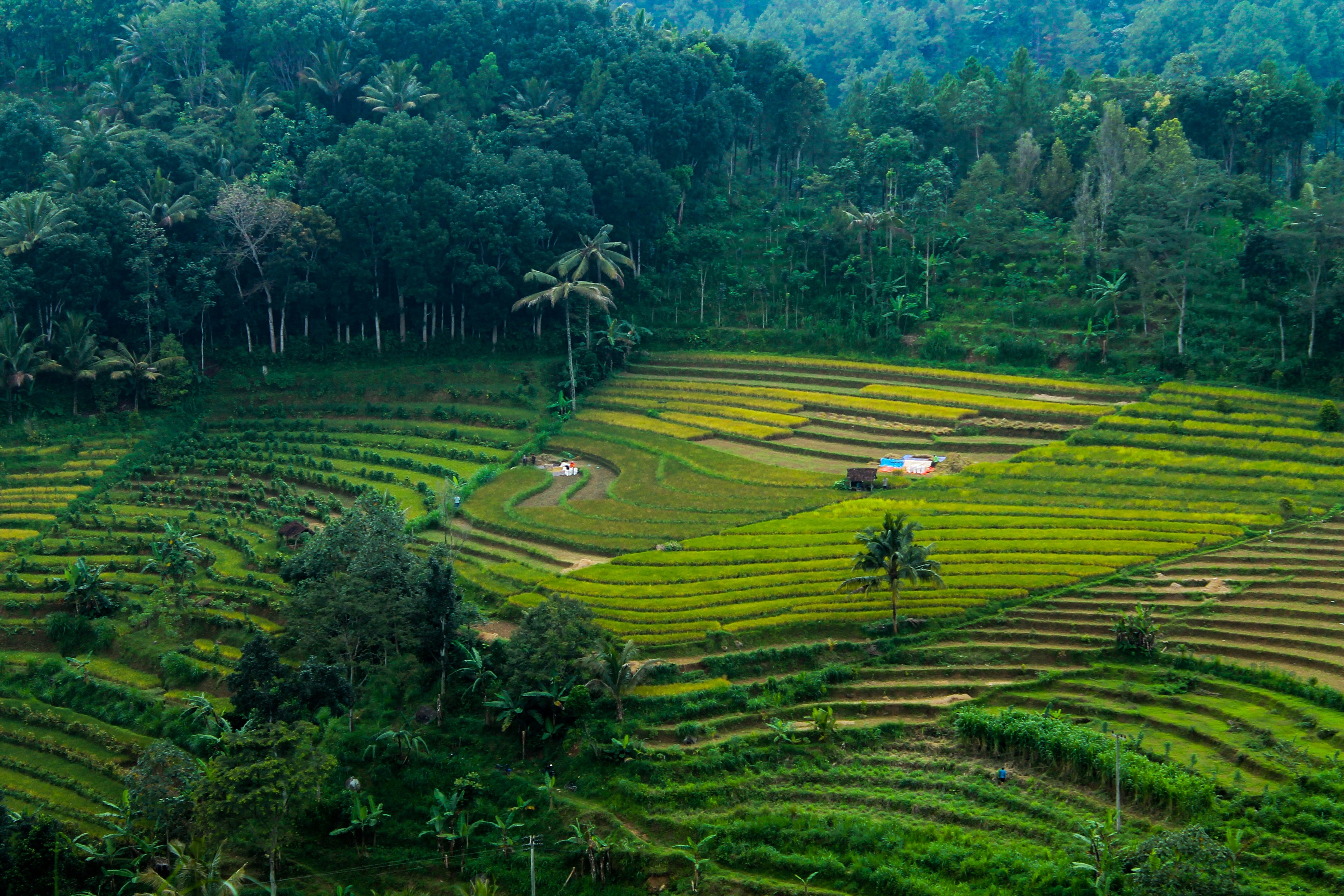
Java
Coffee Production in Java, Indonesia
1. Historical Background
Java is one of the oldest coffee-producing regions in the world, with a legacy dating back to the late 1600s. Coffee was introduced to Java by the Dutch East India Company (VOC) around 1696, making it the first island in the Indonesian archipelago to cultivate the crop. By the early 18th century, Java had become a major supplier of coffee to Europe, and the term “Java” became synonymous with coffee in global trade. The Dutch established large government-owned estates, many of which still operate today, particularly in East Java, near the Ijen Plateau.
Throughout the 19th century, Java’s coffee industry faced setbacks due to leaf rust disease and over-reliance on the Typica variety. This led to the introduction of new cultivars and the reorganization of estate structures. However, Java maintained a reputation for producing clean, balanced, and mild Arabica coffees, distinct from the more earthy and heavy-bodied coffees of Sumatra and Sulawesi.
2. 20th Century Growth and Market Role
During the 20th century, Java retained its status as a premium origin within Indonesia, particularly for washed Arabica from state-run plantations. Estates such as Blawan, Kayumas, Djampit, and Pancoer became known for consistent quality and traceability. These estates, operating under the auspices of PT Perkebunan Nusantara XII (PTPN XII), contributed significantly to Java’s international visibility, particularly in specialty markets in Japan, Europe, and the U.S.
By the late 1900s, smallholder involvement in coffee had increased, particularly in West and Central Java, though most specialty-grade coffees still originated from higher-altitude estates in the east. Java’s production volume is relatively modest compared to other Indonesian islands like Sumatra, but its coffee is known for its clarity, balance, and refined sweetness.
3. Present-Day Production and Export Trends
Java remains a significant contributor to Indonesia’s Arabica output. Most high-quality Arabica continues to come from the Ijen Plateau, at elevations ranging from 1,200 to 1,600 meters above sea level. Here, volcanic soils, mild temperatures, and consistent rainfall provide ideal growing conditions. Java’s coffee exports typically include both estate-grown washed coffees and smallholder lots, some of which now undergo natural and honey processing to meet global specialty demand.
Production volumes vary by year and estate, but Java contributes a sizable share of Indonesia’s Arabica exports, which collectively made up around 20–25% of Indonesia’s total coffee exports as of 2024. Increasingly, microlots and traceable smallholder batches are reaching the specialty market, supported by initiatives from exporters and cooperatives.
4. Market Dynamics and Trade Challenges
Java’s coffee trade faces several challenges common to Indonesian production: aging infrastructure, climate variability, and competition from other high-volume producing countries. The reliance on estate-grown coffee also limits scalability compared to regions with more diversified smallholder participation. Additionally, leaf rust and climate-related stress remain ongoing threats, especially in high-altitude zones.
However, renewed interest in traceable, heritage coffees, as well as investments in quality control and sustainability, are helping Java reposition itself. Some exporters and local stakeholders have introduced direct trade models with smallholders and estate processors, improving quality premiums and traceability. The logistics of transporting coffee from Java’s highlands to the port of Surabaya are relatively efficient compared to more remote Indonesian regions.
5. Outlook
Java’s coffee industry is at a unique intersection of history and innovation. While estate-grown washed Arabica continues to define the region’s identity, increasing experimentation with processing methods, varietals, and smallholder traceability is carving out new space in the specialty market. Java is well-positioned to serve both traditional buyers seeking clean, balanced profiles and progressive roasters looking for complexity and innovation from a historically rich origin.
With sustained investment in infrastructure, agronomy, and farmer engagement, Java is poised to remain a valuable—and evolving—origin in the global specialty coffee trade.
Learn more about the Origin
Shop Coffees from Java
-
Example product title
Regular price $19.99 USDRegular priceUnit price / per -
Example product title
Regular price $19.99 USDRegular priceUnit price / per -
Example product title
Regular price $19.99 USDRegular priceUnit price / per -
Example product title
Regular price $19.99 USDRegular priceUnit price / per

